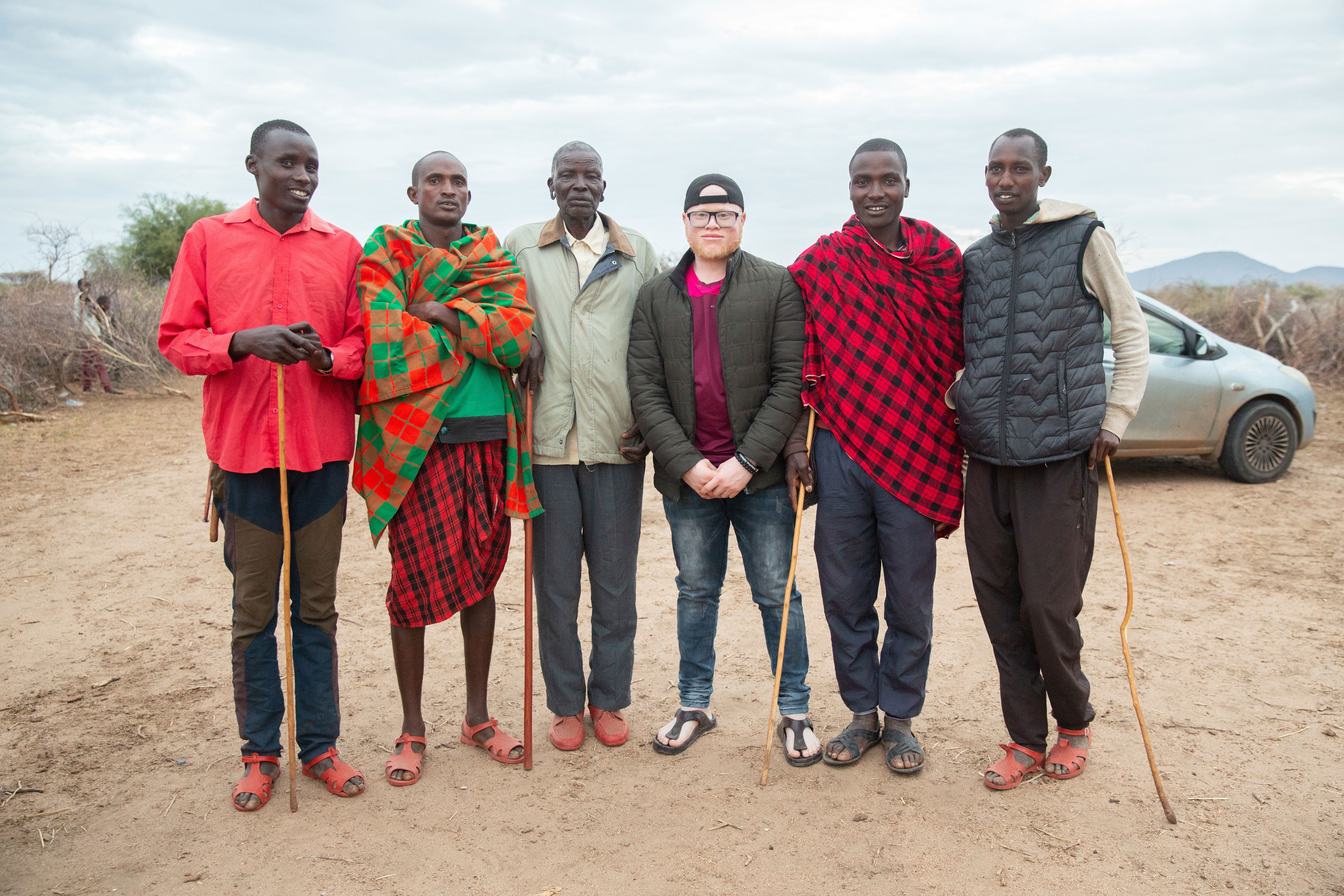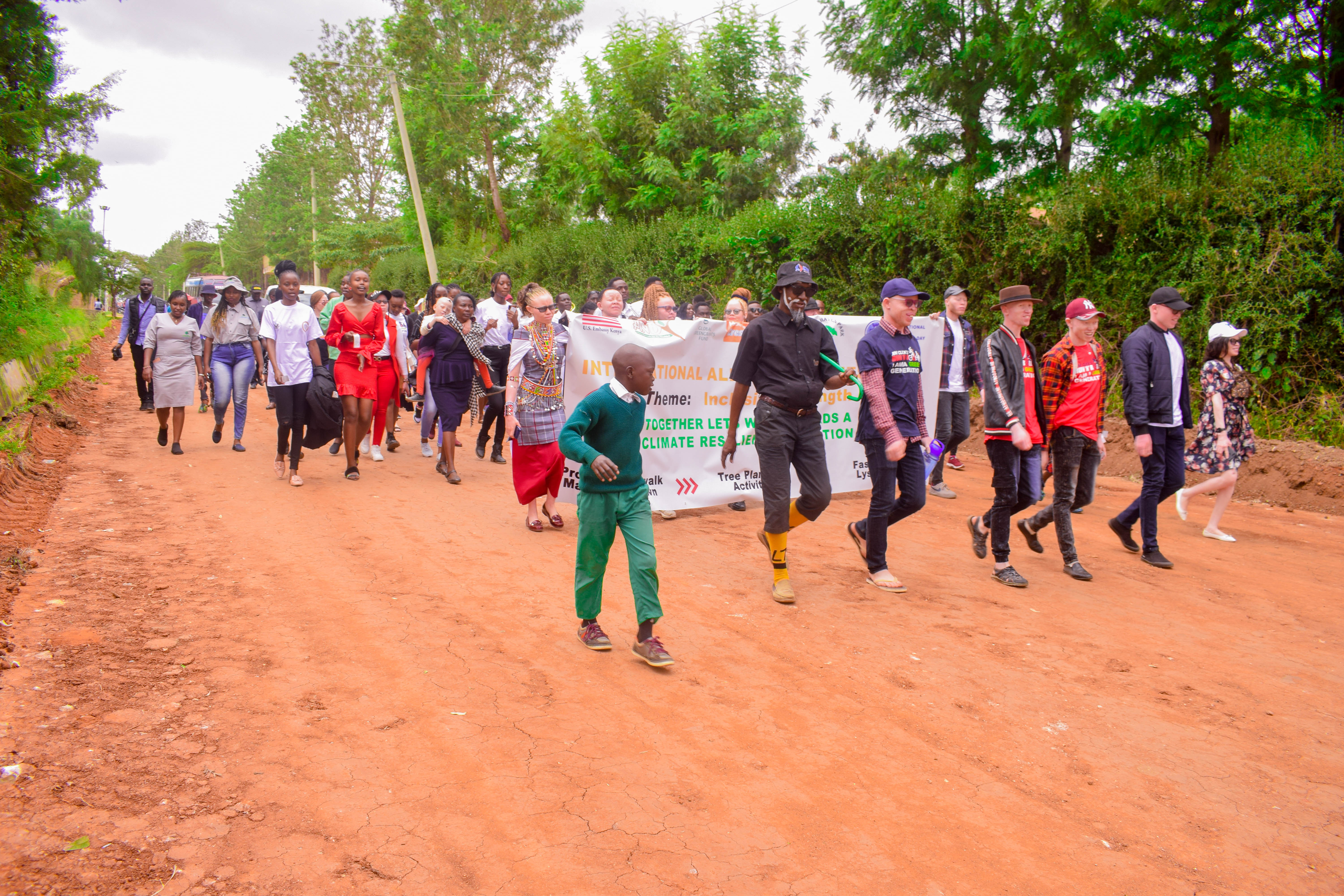Nurturing Resilience By Extending Efforts to Address Climate Change Impacts on Persons with Albinism in Kenya.
For the past year with support from the US Embassy in Nairobi, we have been implementing a project focused on the impact of climate change on persons with albinism in Machakos, Kajiado, and Kitui counties. Our project aims to assess the level of awareness about climate change among individuals with albinism, community members, and key service providers, including healthcare workers. By gaining insights into the intersection of climate change and albinism, we seek to better understand the challenges faced by this vulnerable group and develop appropriate strategies to address them effectively.

Our findings have revealed significant challenges faced by persons with albinism in accessing essential sunscreen and dermatology services, which are crucial for protecting themselves from the harmful effects of the scorching sun, such as sunburns. Participants highlighted various factors contributing to these challenges, including the frequent unavailability of skin care products at government health facilities, knowledge gaps among healthcare providers about albinism, and the high cost of skincare products, among others.

In addition to the challenges faced in accessing sunscreen and dermatology services, key findings have illuminated the profound impact of climate change on livelihoods, especially within pastoral communities. Zipporah Ntinnie, our Climate Change champion in Kajiado County, shared her firsthand experiences, highlighting the difficult choices families are forced to make. She expressed, "We have had to share our food with our livestock. As we allocate resources to buy maize for our families, we also have to budget for the cattle. This has strained our financial standings.

With support from the Global greengrants fund and building on the valuable insights and experiences gained from our previous works, we are excited to extend our efforts to additional regions in Kenya. In the coastal city of Mombasa, the lakeside city of Kisumu, and the region of Muranga, people with albinism may be particularly vulnerable to the impacts of climate change.
Rising sea levels, increased storm intensity, and saltwater intrusion in Mombasa can significantly affect the health and livelihoods of individuals with albinism who reside and work near the coast. Similarly, changes in water levels of Lake Victoria in Kisumu can have negative consequences for the well-being of people with albinism who depend on the lake for their livelihoods. In Muranga, located inland, individuals with albinism may face the repercussions of extreme weather events, and shifts in agricultural production and food security.
Building upon our existing work, we aim to extend similar approaches to the coastal city of Mombasa, the lakeside city of Kisumu, and the region of Muranga in Kenya. Our project seeks to expand awareness of the impact of climate change on people with albinism, promote inclusive and sustainable livelihoods, and improve access to protective measures. By leveraging our experience and engaging with local communities, including individuals with albinism, their families, and disability climate change champions, we will adapt our community meetings, educational materials, training sessions, and advocacy workshops to address the unique challenges faced in these new target counties.

Our ongoing project and the proposed expansion reflect our commitment to addressing the urgent intersection of climate change and the well-being of individuals with albinism. By raising awareness, promoting inclusive livelihoods, and enhancing access to protective measures, we strive to build resilience and empower individuals with albinism to thrive amidst the changing climate. Through collaboration with local communities, stakeholders, and government officials, we aim to create lasting change and advocate for the inclusion of people with albinism in climate change adaptation and mitigation strategies. Together, let us work towards a future where every individual, regardless of their abilities or circumstances, can face the challenges of climate change with dignity and resilience.